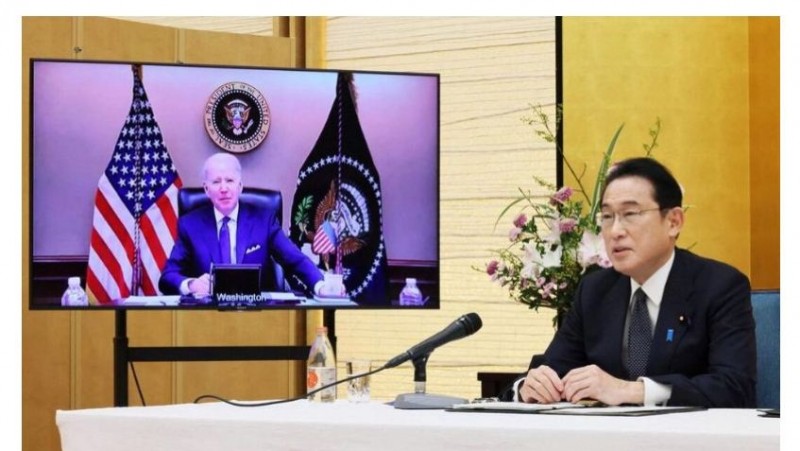
Beijing claimed on Thursday that the United States and Japan had criticized China during a summit in Washington, where US President Joe Biden and Japanese Prime Minister Fumio Kishida revealed plans to strengthen their defense cooperation.
Biden and Kishida announced the restructuring of the US military command in Japan, the most significant change since the 1960s.
The aim is to enhance the readiness of US and Japanese forces in case of threats, such as a potential Chinese invasion of Taiwan.
While Biden asserted that the military upgrade near China was purely defensive, he has expressed his intention to build alliances to counter Beijing.
Responding to questions about Kishida's visit and the enhanced ties, Chinese foreign ministry spokeswoman Mao Ning stated that the US and Japan had criticized China on Taiwan and maritime issues, interfering in China's internal affairs and violating international norms.
Mao expressed China's strong dissatisfaction and firm opposition to this criticism and said China had lodged formal protests with the relevant parties.
She emphasized that the US-Japan relationship should not target or harm other countries' interests and should not disrupt regional peace and stability.
In a joint statement, the US and Japan announced their intention to upgrade their command and control frameworks for better coordination of operations and capabilities.
Currently, around 54,000 US military personnel in Japan report to the Indo-Pacific Command in Hawaii, thousands of miles away. The new framework aims to improve interoperability and planning between the two countries' forces.
The statement also highlighted plans to enhance cooperation in intelligence, surveillance, reconnaissance, and cybersecurity.
Kishida described the alliance as essential for maintaining peace and democracy in the region amid China's increasing assertiveness and emphasized the importance of peace and stability in the Taiwan Strait.
Mao reiterated China's stance that the Taiwan issue is purely its internal affair and rejected any external interference.
China considers Taiwan its territory and has not ruled out the use of force to reunify the self-governed island.
Later on Thursday, Biden will host the first trilateral summit between Japan, the Philippines, and the United States to support Manila amidst tensions with China in the South China Sea.
The three nations conducted joint naval and air exercises with Australia in the South China Sea over the weekend to counter China's assertiveness.
China responded with its own military patrols in the region.
Mao defended China's activities, stating they comply with international law and reiterated China's sovereignty over the South China Sea Islands and surrounding waters.
She emphasized China's commitment to resolving maritime issues through dialogue and consultation to maintain peace and stability in the South China Sea.
US Admiral Warns of China's Territorial Aggression in South China Sea
Taiwan Bolsters Defense Strategy Amid Rising Tensions with China
Trilateral Summit Boosts Defense Ties: US, Japan, Philippines Forge Closer Cooperation